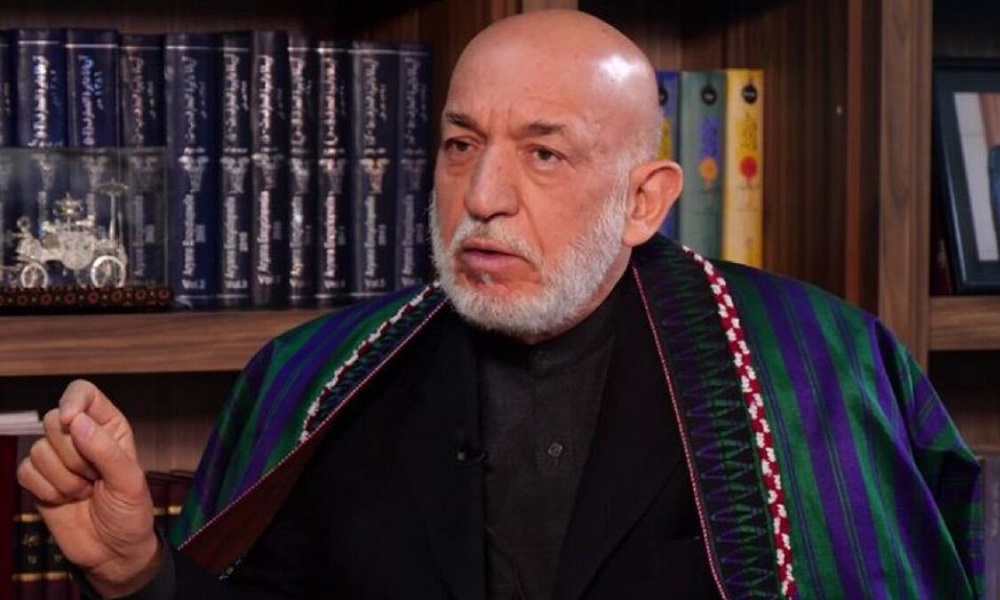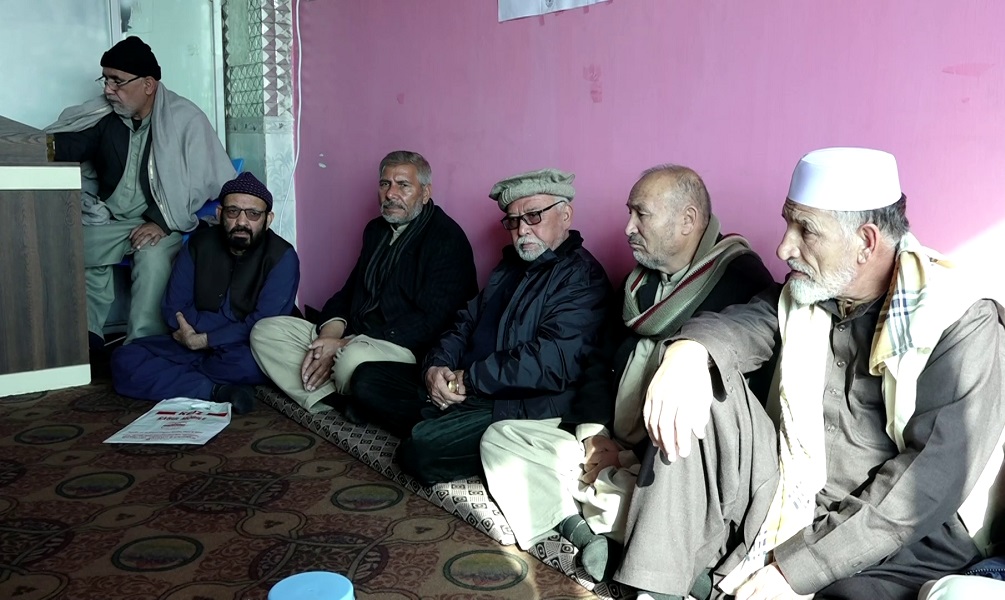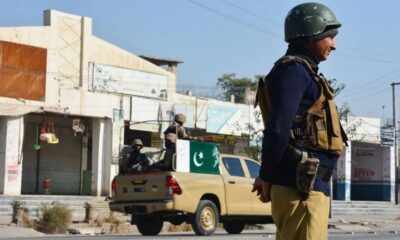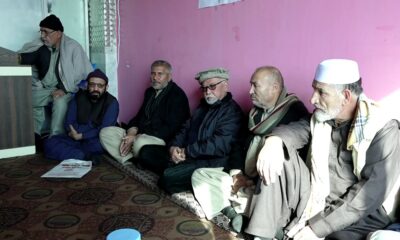Latest News
Small rocky planet detected in orbit about nearby Barnard’s star
While this planet, orbiting very close to Barnard’s star, has a surface temperature too high to be suitable for life, the researchers found what they called “strong hints” of three other planets around Barnard’s star that might be better candidates.

Barnard's star is a red dwarf, the smallest type of regular star and much smaller and less luminous than our sun. At about 6 light years away, it is the closest single star - one not orbiting with other stars - to our solar system. It is, in cosmic terms, in our neighborhood.
Because of this, scientists eager to study nearby potentially habitable worlds are excited by the discovery of the first confirmed planet orbiting Barnard's star, a rocky one with a mass about 40% that of Earth, Reuters reported.
While this planet, orbiting very close to Barnard's star, has a surface temperature too high to be suitable for life, the researchers found what they called "strong hints" of three other planets around Barnard's star that might be better candidates.
The confirmed planet, called Barnard b, has a predicted diameter about three-quarters that of Earth, so about 6,000 miles (9,700 km).
"It is one of the least massive planets ever found," beyond our solar system, said astronomer Jonay González Hernández of the Instituto de Astrofísica de Canarias in Tenerife, Spain, lead author of the study published this week in the journal Astronomy & Astrophysics, opens new tab.
Among planets in our solar system, only Mars and Mercury are smaller.
Barnard b, with a surface temperature around 275 degrees Fahrenheit (125 degrees Celsius), orbits Barnard's star in just three Earth days at a distance 20 times closer than our solar system's innermost planet Mercury is to the sun.
Planets beyond the solar system are called exoplanets. Scientists searching for exoplanets that possibly could harbor life look at those residing in the "habitable zone" around a star, where it is not too hot and not too cold, and liquid water can exist on the planetary surface.
The researchers used an instrument called ESPRESSO on the European Southern Observatory's Chile-based Very Large Telescope to detect this planet. The three other potential planets orbiting Barnard's star all apparently are rocky and smaller than Earth, ranging from 20-30% of Earth's mass. The hope is that at least one of these may be in the vicinity of the habitable zone.
If confirmed, this would be the only known star with a multi-planet system entirely comprised of planets smaller than Earth.
Barnard's star, in the constellation Ophiuchus, has a mass about 16% of the sun's, a diameter 19% of it and is far less hot. It also is estimated to be more than twice as old as the sun.
"Being so cold and small, it is quite faint, making its habitable zone much closer to the star than in the case of the sun," said Instituto de Astrofísica de Canarias astronomer and study co-author Alejandro Suárez Mascareño. "It also is a very quiet star. While some red dwarfs have been found to flare very frequently, Barnard's star doesn't do it."
The closer that exoplanets are to us, the easier they are to study. It is easier to detect low-mass rocky planets orbiting red dwarfs, the most common type of star in our Milky Way galaxy, than around larger stars.
Only the three stars in the Alpha Centauri system, about 4 light-years away, are closer to our solar system than Barnard's star. A light-year is the distance light travels in a year, 5.9 trillion miles (9.5 trillion km). Two exoplanets have been detected in the Alpha Centauri system, both orbiting the red dwarf Proxima Centauri. One has a mass about equal to Earth's. The other is about 25% Earth's mass.
In science fiction, light speed travel is commonplace. In reality, it is far beyond human capabilities, though research projects such as Breakthrough Starshot are exploring the feasibility of interstellar travel. Barnard's star and Alpha Centauri might be on wish lists of future destinations.
"While they are very close in astronomical terms, they are out of reach for any kind of human technology. However, if projects such as the Breakthrough Starshot are successful, it is likely that these will be some of the first targets," Mascareño said.
Latest News
G7 envoys urge national dialogue for lasting stability in Afghanistan

Special Representatives of the Group of Seven (G7), including the European Union, have emphasized the importance of a national dialogue for achieving long-term stability in Afghanistan.
Following a meeting on Afghanistan in Geneva, Switzerland, G7 special envoys issued a joint statement calling for the restoration of women's rights and urging the Islamic Emirate to fight terrorism.
The statement reads: "Achieving sustainable peace and stability requires credible governance that represents all segments of Afghan society."
The representatives also expressed concern over the IEA’s decision to ban girls from attending medical institutes, warning that it will have devastating consequences for the citizens, particularly mothers and their infants.
The statement described this ban as unacceptable and called on the Afghan authorities to lift it immediately.
Earlier, countries and international organizations had called for the removal of restrictions on the education and employment of women and girls, emphasizing the need for a national dialogue.
In response to these concerns, IEA has repeatedly stated that it will not allow interference in the internal affairs of the country.
The G7 special envoys also expressed their concern about the recent terrorist attacks in Kabul and the surrounding region, warning that terrorism remains a serious threat to Afghanistan's security. They confirmed the actions of the IEA against Daesh but stressed the need for more decisive measures.
Latest News
Afghanistan’s bright future lies in educating girls: Karzai

Hamid Karzai, the former president of Afghanistan, says the demand of Afghan girls for the reopening of schools and universities is their fundamental right and adds that Afghanistan cannot have a bright future without ensuring access to education for girls.
In a statement on his X (formerly Twitter) account, Karzai said: "The demand and voice of our country’s girls for education and knowledge is a rightful one and crucial for a prosperous Afghanistan."
He further emphasized, "Empowering the youth—both girls and boys—is the only way to achieve self-reliance, break the cycle of poverty, and drive the development and prosperity of society."
Karzai underscored that education is vital for Afghanistan’s growth and development, expressing hope that the doors of schools and universities for girls will be reopened as soon as possible.
Latest News
IEA to set up special courts to address pensions

Mawlawi Hebatullah Akhundzada, the supreme leader of the Islamic Emirate of Afghanistan (IEA), has issued a decree to establish special courts to address pensions, Bakhtar news agency reported on Saturday.
According to the decree, the courts must confirm and process pensions in accordance with Sharia and law.
Pensioners have repeatedly voiced concern over delay in payment, saying that their financial challenges are growing.
Earlier this year, IEA's supreme leader banned money being deducted from salaries of government employees for pensions.
He also requested information on the tenure of employees and the total amount deducted from salaries for pensions.
-

 International Sports5 days ago
International Sports5 days agoWinners of The Best FIFA Football Awards 2024 to be revealed Dec. 17
-

 Regional4 days ago
Regional4 days agoBomb kills chief of Russian nuclear protection forces in Moscow
-

 Sport4 days ago
Sport4 days agoATN once again seals deal to broadcast upcoming IPL across Afghanistan
-

 Sport4 days ago
Sport4 days agoLanka T10: All three matches abandoned due to rain
-

 World4 days ago
World4 days agoAt least 100,000 bodies in Syrian mass grave, US advocacy group head says
-

 Latest News4 days ago
Latest News4 days agoIndia hoping to import coal and marble from Afghanistan
-

 Latest News4 days ago
Latest News4 days agoTrump says he would have pulled out of Afghanistan with ‘dignity and strength’
-

 Sport3 days ago
Sport3 days agoZimbabwe’s opening ODI against Afghanistan abandoned
























